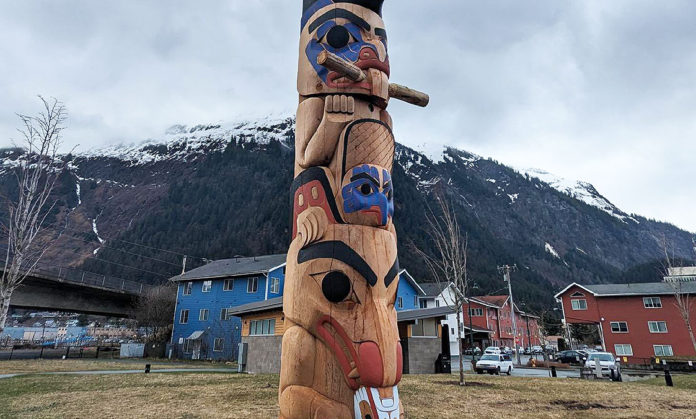FORT YUKON, AK – Assistant Secretary for Indian Affairs Bryan Newland wrapped up a week-long tour of Alaska where he highlighted investments being made through the President’s Investing in America agenda to advance tribal climate resilience and combat the crisis of missing and murdered Indigenous peoples.
Assistant Secretary Newland joined southeast area tribal leaders in Juneau for meetings focused on the Interior Department’s ongoing efforts to support sustainable economies across the state, protect subsistence rights, improve the land into trust process for Alaska Native tribes, and safeguard critical infrastructure.
Assistant Secretary Newland also participated in the Not Invisible Act Commission’s public hearing in Anchorage. The hearing is part of the continued work by the members of the Commission, appointed by the Departments of the Interior and Justice, to develop recommendations to guide Congress and federal agencies on how to best combat the crisis of missing and murdered Indigenous peoples and human trafficking, as required under the Not Invisible Act. Assistant Secretary Newland and the Commission heard from survivors as well as family members of missing and murdered individuals from across Alaska on improving public safety in the state.
Principal Deputy Assistant Secretary Wizipan Garriott and members of the Indian Affairs team visited Newtok Village, which is receiving $25 million to begin voluntary community driven relocation as part of a new initiative and $135 million commitment announced last year for 11 severely impacted tribes to advance relocation efforts and adaptation planning. Funding for the program comes from the Bipartisan Infrastructure Law and Inflation Reduction Act. Located on the Ninglick River, Newtok is experiencing progressive coastal erosion from ocean storms and degrading permafrost. Multiple erosion studies have concluded that there is no cost-effective way to halt this process and that the people of Newtok must relocate.
The Assistant Secretary then traveled to the Native Village of Fort Yukon, which is receiving a $5 million grant as part of the same initiative to advance relocation efforts and adaptation planning. The grant will support the tribe’s planning to reach decisions and prepare for increased climate resilience measures, with the community’s priority being the construction of a road that will also serve as a levee to protect the Village from Porcupine River flooding.
Assistant Secretary Newland’s visit also highlighted the Department’s recent announcement of more than $16 million over the next four years from the Bipartisan Infrastructure Law to enhance the resilience of ecosystems and salmon in Alaska’s Yukon, Kuskokwim and Norton Sound region through co-stewardship with Alaska Native tribes. The funding advances the new “gravel to gravel” initiative, the Department’s response to a resounding call for federal action from Alaska Native tribes and subsistence users.




















































